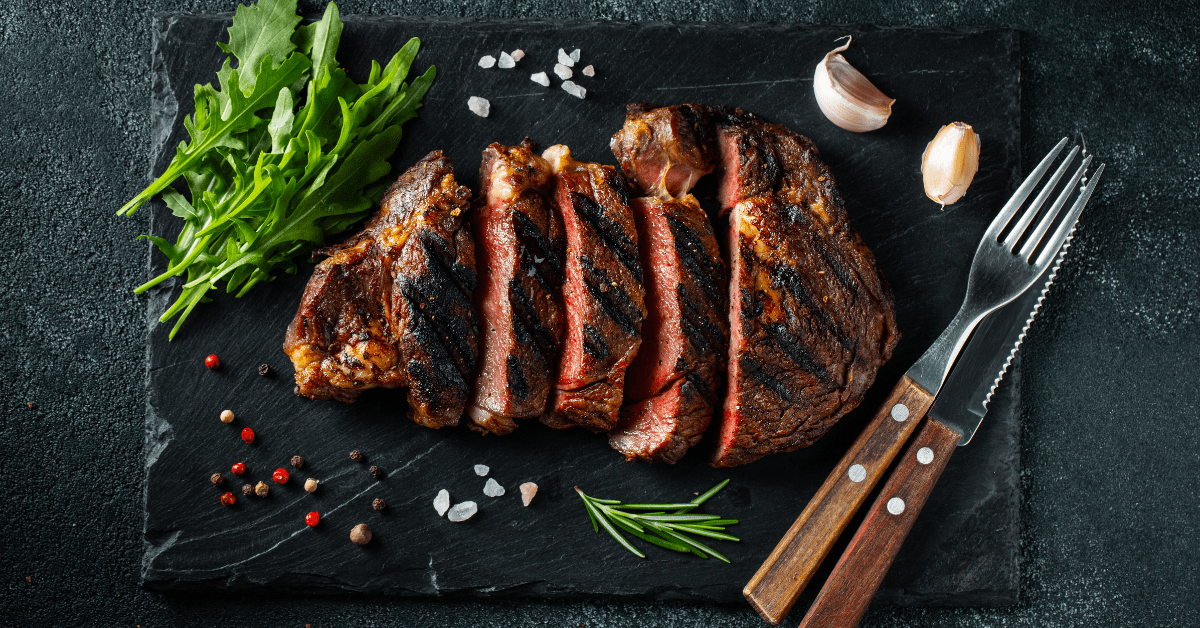This new year, just like any other, we’re thinking about our health. Even if you’re not into resolutions, you still want to get back on track after enjoying yourself over the holidays. Whatever your goal is, there’s one vital component of your health that you must take care of, and it might be the last thing on your mind: your gut. And no, I’m not talking about the belly pooch from all the Christmas cookies.
Why You Should Focus on Your Gut
When we talk about your gut, we’re referring to the microorganisms in your intestines known as the “gut microbiome.” It’s where your body breaks down the food you eat. In this area, you have hundreds of bacteria and fungi. This is good bacteria, which helps us thrive and fight off disease.
So, what you eat impacts your gut. It might not be a surprise then that when our gut is unhealthy, we may experience discomforts like gas, bloating, nausea, or diarrhea. You may have also noticed that you tend to break out when you’re not eating well. And, of course, the scale usually isn’t the nicest after the holidays.
But poor gut health goes beyond all those things. Studies show poor gut health has been linked to cancer, heart problems, thyroid issues, diabetes, and rheumatoid arthritis, to name a few. Gut health is also instrumental to our mental health.
All that to say, your gut controls your health. If you focus just on gut health, then you can help alleviate a myriad of problems.

Things That Hurt Your Gut
As I’m sure you could guess, junk food has a lot of elements that hurt your gut. However, some foods labeled “healthy” could be chock-full of things harming your gut, too. It’s important to read labels, so you know what’s in your food. In other words, if you’re buying olive oil, the ingredient should just be olive oil—not 73 chemicals you can’t pronounce!
You want to reduce sugar (particularly the refined kind, but cane sugar is better), artificial sweeteners (the things that taste good but are low in calories), processed foods, artificial colorings, and seed oils. Some inflammatory foods could also hurt your gut, like gluten, dairy, nightshade vegetables, or coffee.
Your lifestyle also plays a key role in your gut health. Stress, sleep, and exercise contribute to how well your gut is doing.

How to Heal Your Gut
Our body has a way of telling us when something’s wrong. If you consistently experience digestive problems, it’s probably time to adjust your diet. Truth be told, given the amount of preservatives and artificial flavors in foods today, most of us likely have some sort of gut imbalance.
Do a Gut Cleanse
To fix any abnormalities, you’ll want to clean your gut. One excellent way to do that is an elimination diet. An elimination diet is used to detect allergies and food intolerances. Believe it or not, you might have sensitivities or intolerances that you’re not even aware of. An elimination diet could help identify those sensitivities or give your gut a break to get it back on track. It would also be a good idea to cut out inflammatory foods and drinks.
The thing about elimination diets is that they’re temporary. You don’t have to stay away from those foods forever. But, if you find you are intolerant to something, it’s best to limit those foods.
And if an elimination diet sounds unrealistic, you could start reducing processed foods, artificial colorings, and seed oils. That will make a difference! Then, you could evaluate if you want to cut back on other foods.
Eat Foods that Help Your Gut
Once you’ve given your gut a break or you’ve started reducing inflammatory foods, you’ll want to eat things with probiotics and prebiotics. Probiotics are fermented foods with good bacteria, like Greek yogurt, kimchi, sauerkraut, kombucha, and kefir. Prebiotics are fiber-rich foods like garlic, oats, mushrooms, artichokes, and dragon fruit. It’s also beneficial to eat a plant-rich diet that has a variety of colors (natural ones, of course!) and drink more water.
Reduce Stress
Stress can really do damage to your gut health. You can lower stress by getting more sleep, exercising, and calming yourself by stimulating the vagus nerve.
Here’s the bottom line: taking care of your health is about mindfulness, not perfection. Notice I said “reduce” mostly instead of “eliminate” bad habits. If we’re worried about messing up, we’ve missed the point. Instead, be mindful of your health and do what you can today to make improvements.

Conclusion
If you want to improve your health this year, you need to take care of your gut. Once you start making mindful changes, you’ll be well on your way to a much healthier new year.






0 Comments
Trackbacks/Pingbacks